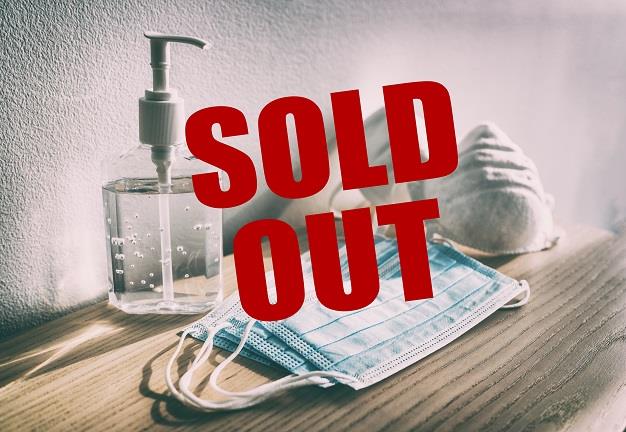South Africans are entering week two of the 21-day lockdown.
Testing measures are being ramped up across the country as, by and large, the government and private sector work together to flatten the infection-rate curve.

While it is a welcome relief for many that certain rules are being relaxed for spaza shops to continue earning a living, we’re finding out fairly quickly what our essential goods are.
Stockpiling at the start of this lockdown period created certain gaps and shortages. But what the crisis has shown tenfold is that medical workers are the ones in desperate need of protective gear as they continue to man the frontlines of the pandemic.
SEE: A list of key Covid-19 payment holidays and debt relief funds - here's how to apply
If you enjoy crafting and getting creative with your hands – now is a good time to consider making some of your own essentials.
DIY you own face masks
While there have been conflicting reports about whether wearing a mask in public is effective in preventing the spread of Covid-19, it has in fact been instituted as a requirement when going out for essential goods during lockdown – as is the need to wear protective gloves.
The N95 mask is said to be the best for protection – but masks are in short supply in certain areas. If you and your family are stuck, you can make your own.
From complex methods of cutting out and stitching your very own fashionable mask, to the simple and effective folding of a square dishcloth or scarf along with two elastic bands to protect yourself. This virus can be airborne for up to a metre and live for a lengthy period on various surfaces - in our opinion, every bit of protection helps.
SEE: How to keep your family happily busy during home quarantine
Hand sanitiser
This has become such a scarce commodity; you could easily consider negotiating a deposit on a bond with it. Seriously though, the Centre for disease control and prevention recommends hand hygiene as a vital part in fighting the spread of Coronavirus Covid19.
Stay protected by washing your hands for 20 seconds with warm water and soap after returning from a public place - and avoid touching your nose, eyes, or mouth with unwashed hands.
CDC also recommends the use of alcohol-based hand sanitizers, with greater than 60% ethanol or 70% isopropanol as the preferred form of hand hygiene in healthcare settings.
So while many of you may not want to consider giving up your whiskey or brandy to create an effective solution, since alcohol sales are prohibited during the lockdown - you could check if your local chemist, which will be open, has isopropyl alcohol available.
Work to the ratio 2/3 cup isopropyl alcohol, to 1/3 cup emollient like aloe gel or similar moisturising cream. Never use pure alcohol straight on your hands as this may burn or cause severe dryness to the outer layer.
Shopping cleansing station
Experts suggest that the virus can live for up to three hours as airborne droplets. The virus could land on hard, shiny surfaces such as plastic, stainless steel, glass and benchtops where it can be active “for up to 72 hours, but rapidly degrades during this time”.
This period is reduced to about 24 hours on fibrous and absorbent surfaces such as cardboard, paper and fabric, “becoming inactive more quickly”.
Your hands, and surfaces exposed to other hands, are seen as the enemy. So bring your own sanitiser when going shopping, since it may not be available at the shops. Cloth bags can be washed, which makes them possibly better than standard plastic bags - and more environmentally friendly too.
Other ways to avoid bringing the virus into your home is applying a bit of DIY rejigging to your garage. Any kind of additional storage in your garage vastly improves your home's appeal - but in the instance of COVID-19, it can be lifesaving.
Clear shelve space to store essential, non-perishable goods you’ve brought home from the store. Set up a sanitising station using warm water and bleach solution to wipe items down that you bring into the house immediately. Watch the video below for a full briefing on how to effectively do this - even with perishable, unwrapped items like fruit and vegetables.
Toilet paper alternatives!
And if push comes to shove, consider these alternatives for toilet paper. This was one of the first items to be stockpiled, bizarrely, across the world. And while you may not want to face the idea of running out of toilet paper, there are other options - from paper serviettes to tearing up some newspapers into squares. Right, we'll just leave that there.
So, if you can't keep calm, keep crafting as you stay at home.








